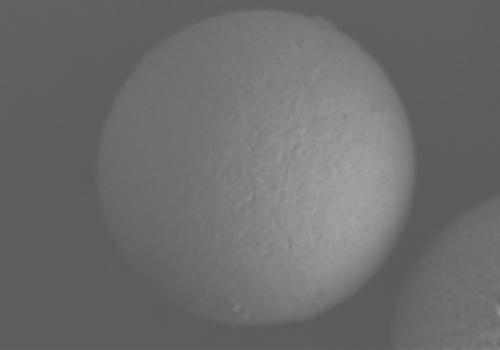April 10, 2024
(press release)
–
Tokyo, Japan, April 10, 2024 – Toray Industries, Inc., announced today that it has developed spherical polyamide 4 fine particle that biodegrades in the sea (see Glossary note 1). The company will provide samples and evaluate the fine particle as a raw material for cosmetics, for which the use of conventional counterparts (note 2) is prohibited and push ahead with technological development for mass production and sales. It aims to commercialize its new offering by the end of March 2025. To date, Toray has manufactured and sold spherical polyamide 12 fine particles, which enhance smooth sliding properties to foundation and eye shadow. The problem is that microplastics in cosmetics and facial cleansers pass through the treatment and filtration systems of domestic wastewater and end up in the seas. This has undermined environmental biodiversity and marine pollution prevention efforts, prompting regulators around the world to begin restricting these materials. In September 2023, the European Chemicals Agency introduced a new restriction on microplastics under an annex to the REACH regulation. Gradual limitations on the use of intentionally added synthetic polymer particulates smaller than 5 mm will roll out, with a total ban starting in 2035. Toray has undertaken biodegradable polyamide 4 R&D to overcome these environmental and regulatory challenges. There are broadly two general methods for producing spherical polymer particles. The first is by dissolving the polymer in a solvent to form spherical micelles, then removing the solvent. The second is by melting the polymer. The problem is that only few solvents can dissolve polyamide 4. On top of that, high melting point and unique thermal properties that cause thermal decomposition on melting, makes it difficult to create fine spherical particles with existing technology. Toray overcame those challenges by harnessing proprietary technology that it amassed over years of R&D and succeeded in producing a spherical polyamide 4 fine particle. The company confirmed that these particles are biodegradable in activated sludge (note 3) and in the oceans (note 4), which have fewer microorganisms than soil. Toray has already completed safety verification (note 5) process and obtained cosmetic ingredient labeling (note 6) needed to sell its spherical polyamide 4 fine particle as a raw material in cosmetics. It is working with cosmetics makers to assess small samples. It will draw on feedback from those customers to improve quality and establish a mass production structure. The company will also keep undertaking R&D with a view to marketing biomass-based biodegradable polymer particles. One goal of the Toray Group Sustainability Vision for 2050 is to contribute to a world in which resources are sustainably managed. The company will cater to customer demand for eco-friendly resins as part of ongoing efforts to realize its corporate philosophy of contributing to social progress by delivering new value while attaining sustainable growth. 1. With biodegradation, bacteria, fungi, and other microorganisms break down organic compounds into simpler inorganic substances, including water and carbon dioxide. Biodegradation is generally slower in the sea, where microorganisms are less abundant than in the soil. 2. Microplastics are synthetic polymer particles smaller than 5 mm that manufacturers intentionally add to products. 3. OECD 301F testing confirmed a more than 80% biodegradation rate in activated sludge in 28 days. 4. ASTM D6691 testing confirmed ocean biodegradation exceeding 90% in 120 days. 5. Confirmed safety with 24-hour occlusion patch and primary skin irritation tests. 6. Obtained International Nomenclature Cosmetic Ingredient name developed by Personal Care Products Council and Japanese ingredient labeling name from Japan Cosmetic Industry Association.
Glossary
* All content is copyrighted by Industry Intelligence, or the original respective author or source. You may not recirculate, redistrubte or publish the analysis and presentation included in the service without Industry Intelligence's prior written consent. Please review our terms of use.




